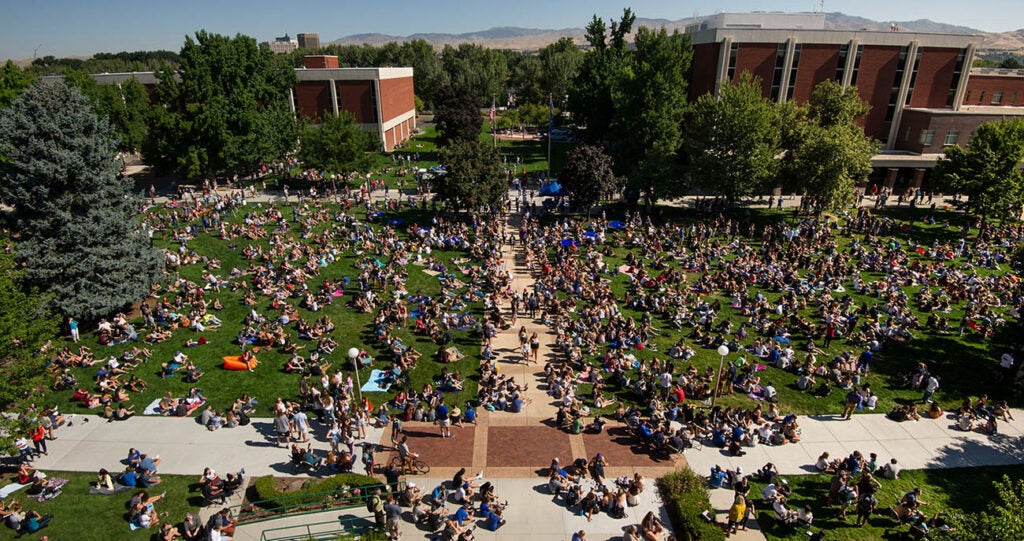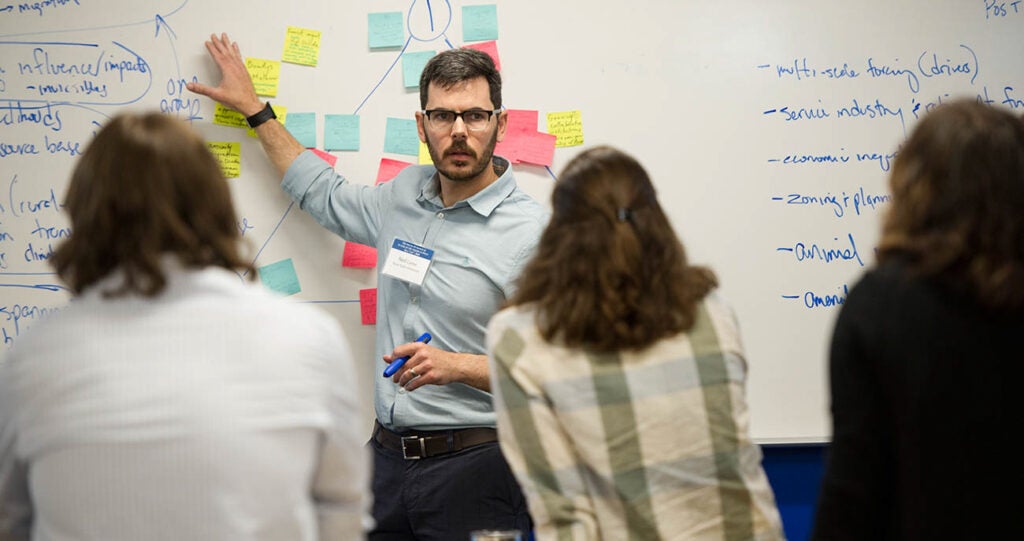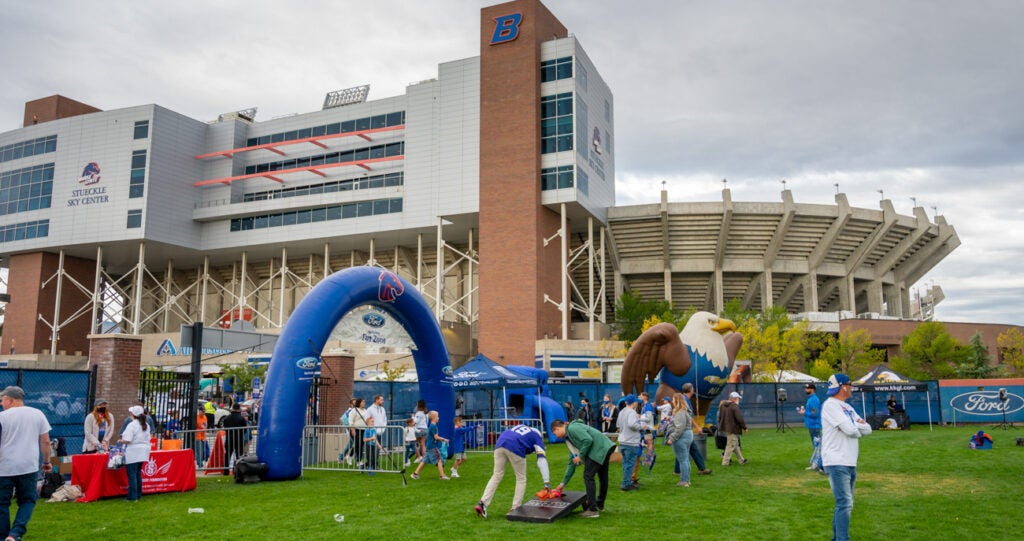
Prior to December 2024, each college, department, and division within boisestate.edu managed its events on siloed websites, impacting visibility and coordination.
Any cross-marketing for events required duplicating them across multiple websites, leading to different people managing the same event separately. Like many web admins, Nick Cesare, Communications Specialist and Web Administrator for the College of Arts and Sciences (COAS), recognized the inefficiencies of this system:
“The decentralized nature made it almost impossible to gather and present all the events happening in the college.”
When our boisestate.edu web environment transitioned to Localist for the university’s primary events calendar management system in Fall 2024, the WordPress Support Team compiled all events into one data “bucket.”
This streamlined cross-collaboration and event sharing while reducing duplication and errors. However, it also gave web admins visibility into all events, including duplicated ones within their college or area, revealing inconsistencies that resulted in similar or identical events being presented differently to users.
“We wanted the college website and the college calendar to be the hub through which people engaged with events in our departments, and that just wasn’t possible when each program was off doing their own thing.” — Nick Cesare
When the COAS communications team brought this issue to WordPress Support, we collaborated to develop a structured, top-down event management strategy. The execution of this approach involved COAS leadership approval, clear communication with COAS event administrators, a durable tagging system, and consolidated efforts to unify all COAS program and area events into a single Localist group using standardized tags.

Designing a process
The process required a structured, collaborative effort between COAS and WordPress Support, following a specific sequence of steps:
1. Identify scope
- Identify COAS departments in Localist groups being affected
- Identify Localist admins affiliated with those Localist groups
- Identify all Localist events being affected
2. Present problem, scope, and solution plan to COAS leadership and obtain approval
3. Determine a transition date
4. Develop COAS event tagging structure
- Communicate with COAS web and Localist admins
5. Carry out the transition
- Update user permissions
- Add all impacted events to the COAS Localist group
- Update all impacted events with the new tags
- Update all widgets on boisestate.edu with new parameters
- Delete all COAS Localist groups
The result is a unified Localist group for COAS, where all COAS events are centralized and categorized using designated program- and area-specific tags. These tags allow for seamless organization, filtering, and targeted marketing of department events.
Six COAS Localist administrators now oversee the event approval process, ensuring that all COAS-affiliated events are reviewed, properly tagged, and approved. Events are no longer duplicated or contain potential inconsistencies, yet still appear in appropriate locations, including specific widgets on designated pages.
Simplified event submission
Meanwhile, web admins now simply submit their events through the campus submission form and no longer have to deal with the burdens of the previous system, or cross-referencing other programs or the main college homepage before creating events.
“I think it’s working well. Previously, we collected events info through a Google form and then entered that into the events platform. By sending stakeholders straight to the Localist form, we’ve eliminated an annoying clerical step and saved time.” — Nick Cesare
For college leadership, this top-down approach is proving effective in resolving complex event management conflicts and reducing errors across college programs and areas.
For COAS event hosts, the new process creates a single, streamlined submission point, minimizing concerns about errors or duplication.
For end users, this process establishes a reliable, centralized source of truth for browsing events across all COAS programs and areas.

Contact us for service and support
If your department or area faces similar challenges and you’re interested in developing a tailored event management strategy, contact the WordPress Support Team through the Help Desk to explore solutions designed for your needs.